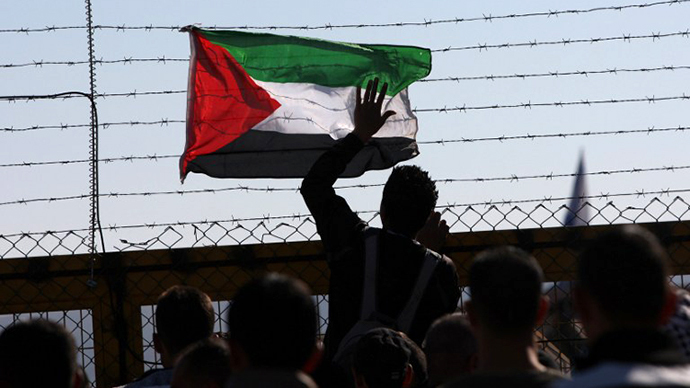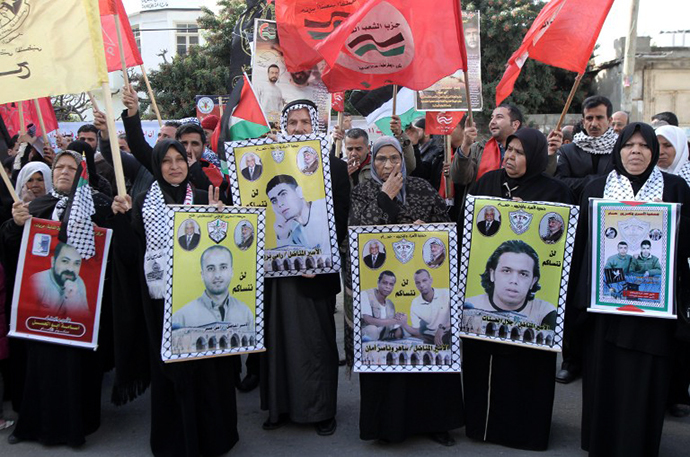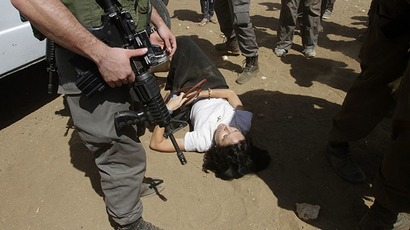HRW lashes out at Israeli 'harassment' of Palestinian prisoner advocacy group

Human Rights Watch has called on the Israeli military to stop harassing Addammeer, an advocacy group for Palestinian prisoners. The NGO has complained about the military targeting the group and imposing restrictions on it without evidence.
Addameer’s main functions are to provide legal aid to prisoners
held by Israel and the Palestinian Authority, conduct research
and empower prisoners and their lawyers with knowledge in
international law. But the organization is being routinely
prosecuted for its stance without much substantiation of claims,
HRW reported.
Following a whole string of such cases, Joe Stork, HRW’s deputy
director for the Middle East, said that “the Israeli
military’s apparent persecution of a prisoners rights group,
especially without allowing the individuals to defend themselves,
is a prime example of the injustices the group seeks to counter…
The military should stop harassing Addameer’s employees on the
basis of vague or secret evidence.”
The most recent incident, as reported by the watchdog, took place
Oct. 21 and involved the military prosecutor ordering four months
of detention for an accountant with the group. He was arrested in
September and held without charge for three weeks. Administrative
detention gave the Israelis the right to hold Samer al-Arbin
without charge or disclosure of evidence.

In September, the Israeli military arrested someone else
connected with Addameer – a lawyer they charged with being a
member of a banned organization, the Popular Front for the
Liberation of Palestine (PFLP). The left-wing faction of the
Palestine Liberation Organization advocates “armed
struggle” to achieve its goal. The lawyer, Anas Barghouthi,
allegedly took part in organizing a non-violent rally more than a
year ago. He was not accused of any violence, however, and denies
the charges.
Another case involved Ayman Nasser, an Addammeer fieldworker who
in October was also accused of PFLP affiliation, following a
series of violent demonstrations. However, he was not proven to
have played any role in the violence. He is now serving 13 months
in prison, while being denied access to a lawyer. He also claims
he was questioned for 20 hours a session. The interrogation
lasted for 39 days and saw Nasser shackled painfully throughout
the ordeal.
Addemeer chairman Abdulatif Ghaith also did not escape Israeli
attention either. The military restricted him from travelling
from his home in East Jerusalem to his office in the West Bank.
They said he posed a “security risk”, but again no
evidence was provided.
HRW noted that in December 2012, the Israeli armed forces carried
out a seizure of Addameer’s equipment and documents during an as
yet unjustified raid. The watchdog has insisted on the military
returning all the materials and compensating the advocacy group
and others affected by the action.
Administrative detainees are not charged, provided with evidence
or even allowed to question the justification for their arrest or
interrogations. Israel claims this is necessary for the safety of
Palestinian informants who are the real source behind the
information that eventually leads to such detentions.
The UN Working Group on Arbitrary Detention opposes such
justifications; in 1994 it stated that “Individual liberty
cannot be sacrificed for the government’s inability either to
collect evidence or to present it in an appropriate form.”
This opinion was upheld by the UN Committee on Human Rights in
2010, whose job it is to supervise state compliance with the
International Covenant on Civil and Political Rights. The
Committee stated that the aforementioned detentions “infringe
detainees’ rights to a fair trial.” It called, among other
things, for detainees to immediately be notified what they are
charged with and “provide them with information to prepare
their defense.”
Human Rights Watch insists that “Israel is obliged to respect
the right to freedom of association, including in the occupied
Palestinian territory. Under international law, governments
should generally not criminalize merely supporting or
participating in nonviolent political activities.”
Stork added that Addammeer’s employees should no longer be
harassed and be allowed to “get on with their human rights
work” and not be turned “into victims of arbitrary abuses
themselves.”














